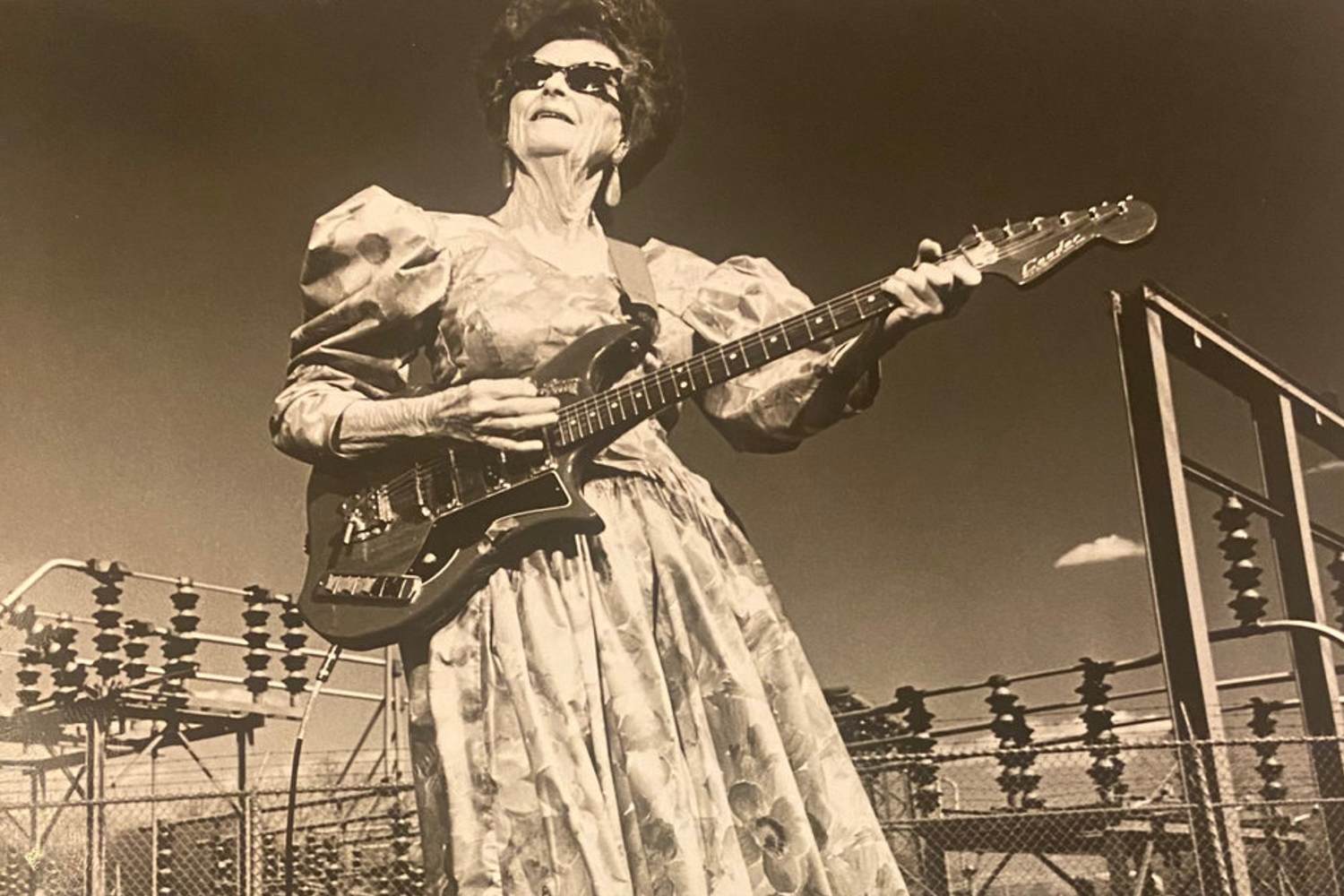This time we turn our attention towards an imbalance in the industry and the pioneering women shifting the dial. It’s a regularly repeated statistic that less than 5% of audio engineers are women. But with riot giants Sleater Kinney returning this month with St Vincent behind the desk and artists like Grimes and Georgia picking up their own production duties, it seems we’re finally making small steps towards equalising women in sound.
They’re not a new breed though. From one woman’s mission in the deep South of Tennessee to breakthrough British talent, let’s begin…
Cordell Jackson 
Thought to be the first woman to produce, engineer, arrange and promote music on her own rock and roll label, American guitarist Cordell Jackson has since become something of an icon on the Memphis music scene. Jackson founded Moon Records in 1956 after struggling to break into the region’s reputed Sun Records’ (who were the first to put out Presley) dominantly male roster. Instead, the guitarist began releasing and promoting her own compositions from a home studio, including this rockabilly number from Allen Page.
Her first music video for 1983’s The Split helped her gain nationwide fame and was actually filmed outside of her own house. She continued to perform up until her death in 2004, even sneaking in spots on MTV and Late Night with David Letterman.
Susan Rogers on Prince’s Purple Rain (1984)
Arguably the most famous woman producer/engineer, Susan Rogers is perhaps best known for her highly prolific period collaborating with Prince in the 80s, most notably on 1987’s Sign o’ the Times and 1984’s iconic Purple Rain.
Her background as a studio repair technician underpinned her approach to getting things sounding right on the spot, and facilitated Prince’s ability to work fast – often going from new song idea to finished mix within a day’s session. Rogers can be credited with helping to shape Prince’s signature dry and tight funk sound, a collaboration between Linn LM-1 drum machine and unorthodox ‘straight into the desk’ guitar tone which produced an upfront, immediate sound that contrasted to the reverb-laden tracks of his contemporaries.
Rogers, who is now a Professor at Berklee College in Music Production, also launched Boston’s first nonprofit recording studio, The Record Company, to offer low-cost recording facilities to local musicians and free music technology instruction to teenagers in the area.
Sylvia Massy Discusses the Role of Music Producer
Another woman who has shared the mixing desks with Prince himself, American record producer Sylvia Massy has left her mark on over three decades of music. In the late 1980s, after a move to the West Coast, Massy bagged a job at Larrabee Sound where she worked on metal juggernauts Tool’s debut, Undertow. She’s since contributed her atypical techniques to fellow alt-metal types System of a Down and funk-rock royalty, Red Hot Chilli Peppers. It was in LA where Massy also met veteran producer Rick Rubin who recruited her to work on a string of projects at Sound City’s Studio B, including Johnny Cash’s album Unchained, which won a Grammy award for Best Country Album in 1997.
Janet Jackson, Rhythm Nation 1814 (1990)
Fresh from this year’s Glastonbury fields, Janet Jackson is possibly more likely to jump out for that Superbowl performance rather than her production skills. But the singer was actually nominated for Producer of the Year back at the Grammy Awards for 1990’s Rhythm Nation 1814. Her fourth full length, Rhythm Nation 1814 – co-produced by Jimmy Jam and Terry Lewis – not only marked her decision to take control of her sound and recorded output but also her vision as an artist. Jackson insisted on creating the concept album addressing social issues, despite label execs wanting similar material to her previous release, 1986’s beat-driven Control.
Mandy Parnell mastering Bjork’s Biophilia (2011)
Our first British name to make the list, Mandy Parnell took home the MPG’s Mastering Engineer of the Year gong in 2015 and can proudly boast Aphex Twin, Brian Eno and The xx as some of her past clients. Based out of Walthamstow in East London, Parnell is perhaps most heralded for her collaborations alongside Icelandic vocalist Bjork on 2011’s Biophilia though. In fact, Parnell recalls flying over to her homeland to re-master the record when the artist confessed to her label at the time, One Little Indian, that she wasn’t happy with the final mix. The partnership would go on to see Parnell return to production duties on 2015’s breakup record, Vulnicura, particularly poignant with the mastering engineer going through her own separation with the late New Orleans jazz pianist Phil Parnell.
Shura, Forever (2019)
Sticking firmly in the Parnell production camp, our final spot goes to rising synth-pop artist Shura – AKA Alexandra Lilah Denton – who worked with the mastering engineer for her debut, Nothing Real back in 2015. This month Shura returns with sophomore release Forehever; an album inspired by her own long-distance relationship, as lead single BKLYNLDN would suggest. Denton admits she taught herself to produce while watching YouTube video tutorials at UCL which feels in keeping with her DIY, blog-pop aesthetic. Because arguably that’s the beauty of bedroom beat-making nowadays. More musicians like Denton pick up their laptop and beloved Juno 106 and start taking control of their production and their profile.
Keen to hear more? Get stuck into our Women In Sound Spotify playlist, from Stateside Rapper’s Delight producer Sylvia Robinson to the new wave of British talent including Ivor Novello Award winner Mica Levi.



